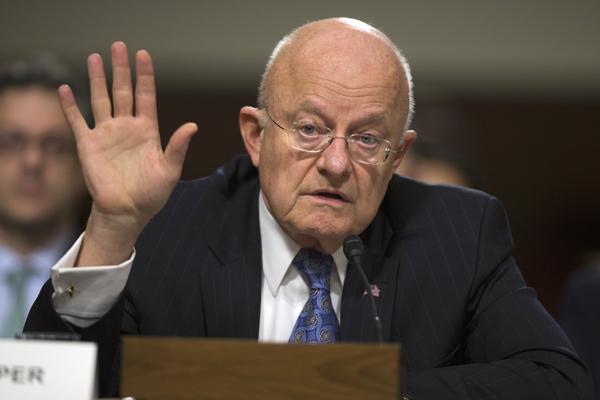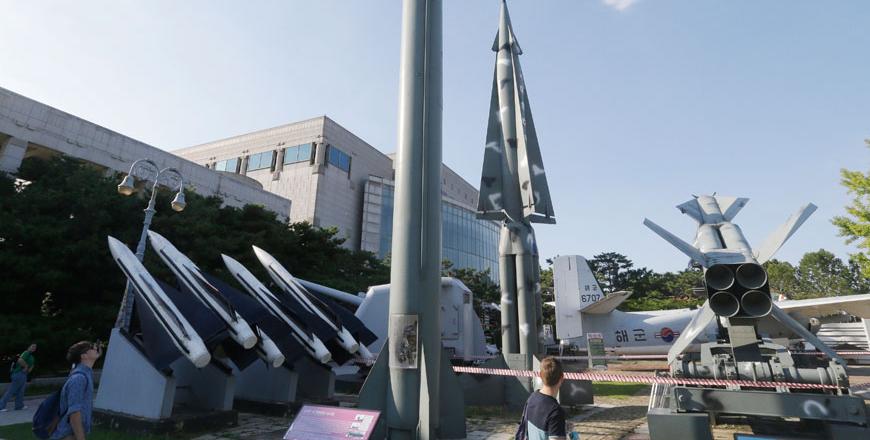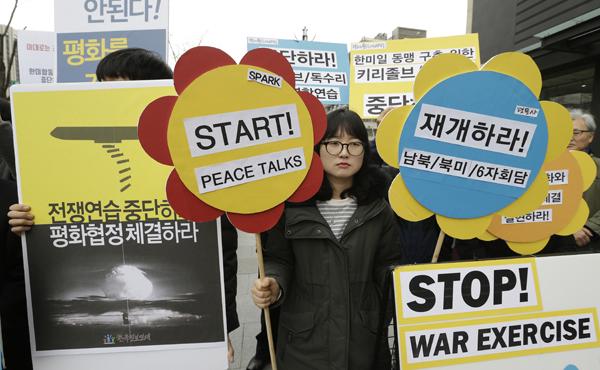You are here
North Korea restarts plutonium reactor — US spy chief
By AP - Feb 09,2016 - Last updated at Feb 09,2016

Director of National Intelligence James Clapper testifies on Capitol Hill in Washington, on Tuesday, before a Senate Armed Services Committee hearing on worldwide threats (AP photo)
WASHINGTON — North Korea has expanded a uranium enrichment facility and restarted a plutonium reactor that could start recovering material for nuclear weapons in weeks or months, the US intelligence chief said Tuesday in delivering the annual assessment by intelligence agencies of the top dangers facing the country.
He also said militants and those inspired by the Daesh terror group will continue to pose a threat to Americans at home and abroad, Al Qaeda remains an enemy and the US will continue to see cyber threats from China, Russia and North Korea.
Director of National Intelligence James Clapper said that Pyongyang announced in 2013 its intention to refurbish and restart nuclear facilities, to include the uranium enrichment facility at Yongbyon and its graphite-moderated plutonium production reactor, which was shut down in 2007. Clapper said US intelligence had assessed that North Korea has expanded Yongbyon and restarted the plutonium production reactor there.
Clapper also told the Senate Armed Services Committee in his opening statement that North Korea has been operating the reactor long enough that it could begin to recover plutonium "within a matter of weeks to months”.
Both findings will deepen concern that North Korea is not only making technical advances in its nuclear weapons programme, following its recent underground test explosion and rocket launch, but is working to expand what is thought to be a small nuclear arsenal. US-based experts have estimated that North Korea may have about 10 bombs, but that could grow to between 20 and 100 by 2020.
North Korea on Sunday launched a rocket carrying an Earth observation satellite into space. The launch followed a January 6 underground nuclear explosion that North Korea claimed was the successful test of a "miniaturised" hydrogen bomb. Many outside experts were skeptical and Clapper said the low yield of the test "is not consistent with a successful test of a thermonuclear device”.
Clapper said that Pyongyang is also committed to developing a long-range, nuclear-armed missile that is capable of posing a direct threat to the United States, "although the system has not been flight-tested”.
Militants, Clapper said, will continue plotting against US interests overseas and homegrown attacks will pose the most significant threat from violent extremists to Americans at home.
"The perceived success of attacks by homegrown violent extremists in Europe and North America, such as those in Chattanooga and San Bernardino, might motivate others to replicate opportunistic attacks with little or no warning, diminishing our ability to detect terrorist operational planning and readiness," he said.
"ISIL [Daesh] involvement in homeland attack activity will probably continue to involve those who draw inspiration from the group's highly sophisticated media without direct guidance from ISIL leadership," he said using an acronym for the militant group.
Clapper said US information systems, controlled by the US government and American industry, are vulnerable to cyberattacks from Russia and China. North Korea "probably remains capable and willing to launch disruptive or destructive cyberattacks to support its political objectives", he said.
Moscow "is assuming a more assertive cyber posture" that is based on its willingness to target critical infrastructure and carry out espionage operations even when those operations have been detected and under increased public scrutiny, Clapper said. Russia's cyber operations are likely to target US interests in part to underpin its intelligence gathering to support Russia's moves in the Ukraine and Syrian crises, he said.
Clapper said China selectively uses cyberattacks against targets Beijing believes threaten Chinese domestic stability or regime legitimacy.
"We will monitor compliance with China's September 2015 commitment to refrain from conducting or knowingly supporting cyber-enabled theft of intellectual property with the intent of providing competitive advantage to companies or commercial sectors," he said.
On Afghanistan, Clapper said the country is at "serious risk of a political breakdown during 2016". He said waning political cohesion, rising activities by local powerbrokers, financial shortfalls and sustained attacks by the Taliban are eroding stability.
Related Articles
VIENNA — North Korea appeared to resume activities this year aimed at producing plutonium, which can be used in the core of an atomic bomb,
SEOUL — North Korea Tuesday confirmed the restarting of a nuclear reactor seen as its main source of weapons-grade plutonium, raising the se
SEOUL — South Korea said Tuesday it is imposing unilateral sanctions on North Korea over its recent nuclear test and rocket launch, includin


















